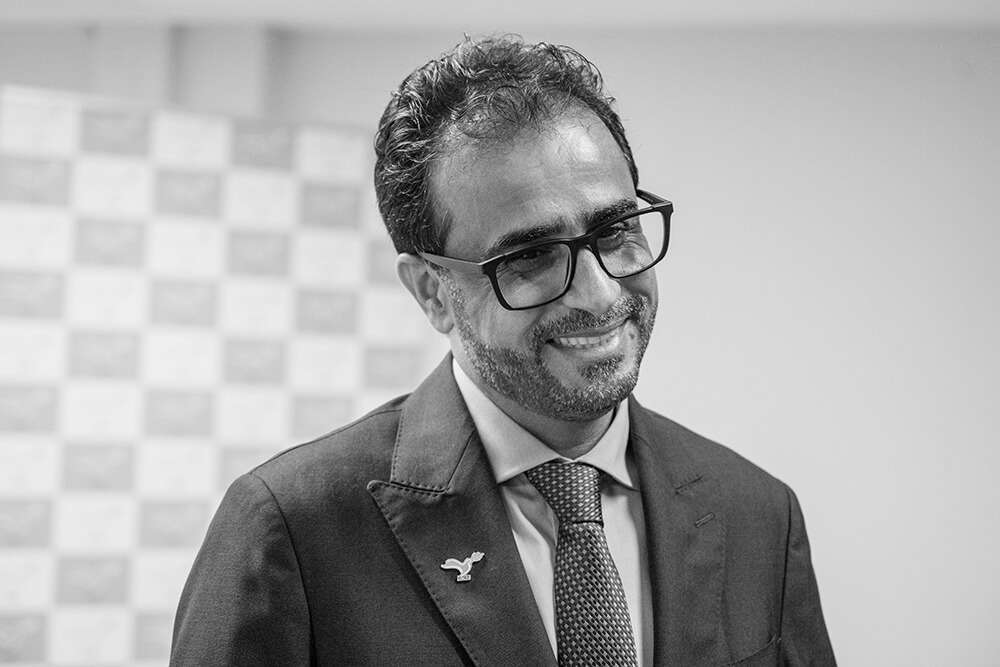The Foundation for Islamic Culture and Religious Tolerance in the Night of the Books

The Foundation is trying to make the Arab and Islamic world and Spain known. What role and importance does the Foundation play in organising cultural activities?
The Foundation for Islamic Culture and Religious Tolerance is built around different objectives. The first is to promote tolerance and cultural diversity, within a religious dialogue between the different religions, thanks to which we can get closer and understand each other much better.
Together we are stronger, especially in these times of pandemic, when we have realised that unity is strength. We need to deepen and reflect on the contributions made by the different religions and the many ways in which they collaborate as a society to help overcome this crisis.
For this reason, the second objective of the foundation is to contribute to the dissemination and learning of the Arabic language, promoting its learning, but we do not only want to teach how to speak, read and write Arabic, but also to deepen and reflect on the contributions of Arab culture, bringing them here.

Why is learning Arabic so important to you?
As you know, Arabic is currently considered the third most spoken language in the world. Next December 18th is World Arabic Language Day. For this special day, the foundation will organize a meeting, for the promotion and recognition of the Arabic language. Many people speak Arabic, we need to better understand this culture, this society that speaks the Arabic language as a culture. To understand our differences, contributing to the brotherhood and dissemination of Islamic culture and civilization, as well as the Arabic language. The development of a universal brotherhood and the promotion of inter-faith dialogue, promoting a discourse of tolerance.
As we can see tonight, the story of the Thousand and One Nights has been translated by Dr. and Professor Salvador Peña, a friend of mine. A story that is a reflection of how we can work together as a single team, there are no differences between us, neither religious, nor colour, nor ethnic, nor country. Tonight, shows that we can sit down together and listen to this wonderful story, putting aside all our differences and working together as one team. This is the main theme when we read writings in Arabic, they make it easier for us to understand Arab and Islamic culture and civilization much better. It is a very important part of our work in the foundation, the translation from Arabic to Spanish and vice versa.

The Thousand and One Nights is one of the great works of world literature and a new and surprising proposal. What background can this work provide to the audience?
The Thousand and One Nights are multiple stories in which we can find and learn about the importance of coexistence, tolerance and unity among all people. That is why we chose this story, a story in which even children can learn about the importance of teamwork, how we can defeat our enemy by working together. It is something that they will keep very much alive in their memory for a long time and that will help in building the values of tolerance and coexistence by living together in peace.
Do you think that in these difficult times cultural coexistence and religious tolerance are possible?
Of course, this moment is essential, so that we can unite in favour of coexistence, even if there are some extremist groups that hate our unity. If we look back, you will see that we have been coexisting for centuries, Muslims, Christians and Jews living together around the world and there are no differences between us, we live, eat and work together. These groups working for the destabilization of these religions and the creation of conflicts between them, the answer is tolerance, understanding and coexistence, factors so important that they have to go hand in hand to fight these groups and show that there are no differences between us who are one.
What do you think Spaniards can learn from Arab culture and society?
When I arrived in Spain, I realized from the beginning that there is a tolerance, a coexistence, an acceptance towards Muslims, Jews... It is my home, to tell you the truth, where I found people always with a smile on their face, working together helping each other and living together. You can see this in the different universities around Spain, where there are people from all over, there are about 2 million Muslims here living and working without any obstacles in peace and harmony. That is why we decided to start the Foundation for Islamic Culture and Religious Tolerance in the country that best reflects tolerance, a country of coexistence, cultural diversity.









